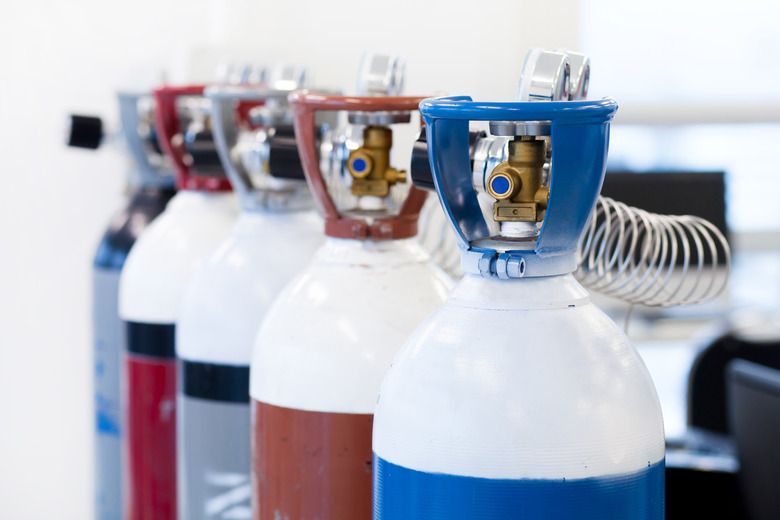How To Calculate Cubic Inches In A Cylinder
A cylinder is a three-dimensional geometric shape that is rounded and elongated. To measure the volume of a cylinder, you would simply measure the top area and multiply it by its height, or depth, depending on perspective. The area is calculated as the square of its radius multiplied by pi, which is a geometric constant measured as 3.14. This may be useful when calculating an engine's cubic inches, especially after boring out the cylinders, or determining the volume of water capable of flowing through a covert.
Step 1
Measure the diameter of the circle in inches. Divide this number by two to get the radius. As an example, if you measured 4 inches, the radius would be 2 inches.
Step 2
Measure the height of the cylinder in inches.
Step 3
Calculate the volume in cubic inches with the following formula:
Volume = Area x Height Volume = Pi x Radius x Radius x Height
As an example, if you measured a radius of 2 inches and a height of 10 inches, your volume would be:
Volume = 3.14 x 2 x 2 x 10 Volume = 125.6 cubic inches
Cite This Article
MLA
Taylor, C.. "How To Calculate Cubic Inches In A Cylinder" sciencing.com, https://www.sciencing.com/calculate-cubic-inches-cylinder-7511879/. 13 March 2018.
APA
Taylor, C.. (2018, March 13). How To Calculate Cubic Inches In A Cylinder. sciencing.com. Retrieved from https://www.sciencing.com/calculate-cubic-inches-cylinder-7511879/
Chicago
Taylor, C.. How To Calculate Cubic Inches In A Cylinder last modified March 24, 2022. https://www.sciencing.com/calculate-cubic-inches-cylinder-7511879/
